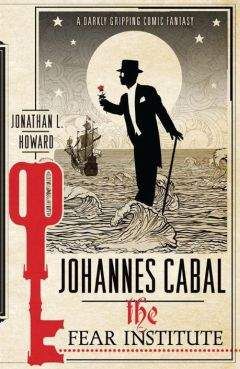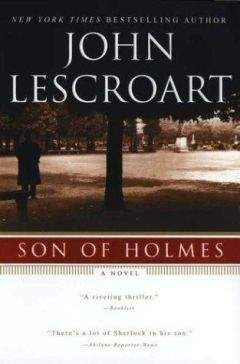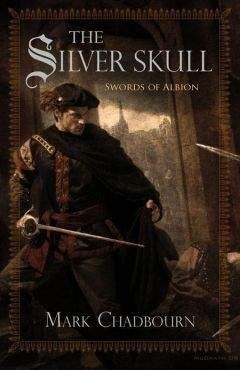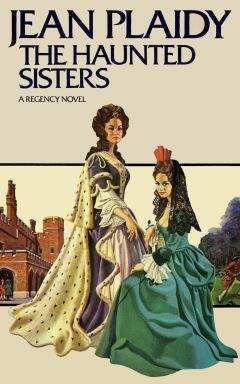Jean Plaidy - Murder Most Royal: The Story of Anne Boleyn and Catherine Howard
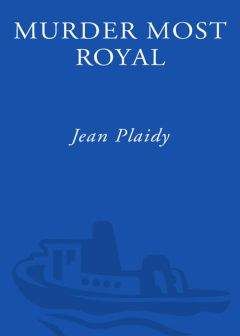
Скачивание начинается... Если скачивание не началось автоматически, пожалуйста нажмите на эту ссылку.
Жалоба
Напишите нам, и мы в срочном порядке примем меры.
Описание книги "Murder Most Royal: The Story of Anne Boleyn and Catherine Howard"
Описание и краткое содержание "Murder Most Royal: The Story of Anne Boleyn and Catherine Howard" читать бесплатно онлайн.
She was melancholy, for the summer was passing and it was sad to see the leaves fluttering down.
The King rode out to Hever. In her room she heard the bustle his presence in the castle must inevitably cause. She locked her door and refused to go down. If Wolsey had ruined her happiness, the King—doubtless at the wicked man’s instigation—had humiliated her by banishing her from the court. Unhappy as she was, she cared for nothing—neither her father’s anger nor the King’s.
Her mother came and stood outside the door to plead with her.
“The King has asked for you, Anne. You must come...quickly.”
“I will not! I will not!” cried Anne. “I was banished, was I not? Had he wished to see me, he should not have sent me from the court.”
“I dare not go back and say you refuse to come.”
“I care not!” sobbed Anne, throwing herself on her bed and laughing and weeping simultaneously, for she was beside herself with a grief that she found herself unable to control.
Her father came to her door, but his threats were as vain as her mother’s pleas.
“Would you bring disgrace on us!” stormed Sir Thomas. “Have you not done enough!”
“Disgrace!” she cried furiously. “Yes, if it is a disgrace to love and wish to marry, I have disgraced you. It is an honor to be mistress of the King. Mary has brought you honor! An I would not come for my mother, assuredly I will not come for you!”
“The King commands your presence!”
“You may do what you will,” she said stubbornly. “He may do what he will. I care for nothing...now.” And she burst into fresh weeping.
Sir Thomas—diplomatic over a family crisis as on a foreign mission—explained that his daughter was sadly indisposed; and the King, marveling at his feelings for this willful girl, replied, “Disturb her not then.”
The King left Hever, and Anne returned to that life which had no meaning—waiting, longing, hoping, fearing.
One cold day, when the first touch of winter was in the air and a fresh wind was bringing down the last of the leaves from the trees in the park, Sir Thomas brought home the news.
He looked at Anne expressionlessly and said: “Lord Percy has married the Lady Mary Talbot. This is an end of your affair.”
She went to her room and stayed there all that day. She did not eat; she did not sleep; she spoke to none; and on the second day she fell into a fit of weeping, upbraiding the Cardinal, and with him her lover. “They could have done what they would with me,” she told herself bitterly. “I would never have given in!”
Drearily the days passed. She grew pale and listless, so that her mother feared for her life and communicated her fears to her husband.
Sir Thomas hinted that if she would return to court, such action would not be frowned on.
“That assuredly I will not do!” she said, and so ill was she that none dared reason with her.
She called to mind then the happiness of her life in France, and it seemed to her that her only hope of tearing her misery from her heart lay in getting away from England. She thought of one whom she would ever admire—the witty, sparkling, Duchess of Alencon; was there some hope, with that spritely lady, of renewing her interest in life?
Love she had experienced, and found it bitter; she wanted no more such experience.
“With Marguerite I could forget,” she said; and, fearing for her health, Sir Thomas decided to humor her wishes; so once more Anne left Hever for the court of France.
The King’s Secret Matter
THE HOUSE AT LAMBETH was wrapped in deepest gloom. In the great bed which Jocosa had shared with Lord Edmund Howard since the night of her marriage, she now lay dying. She was very tired, poor lady, for her married life had been a wearying business. It seemed that no sooner had one small Howard left her womb than another was growing there; and poverty, in such circumstances, had been humiliating.
Death softened bitter feelings. What did it matter now, that her distinguished husband had been so neglected! Why, she wondered vaguely, were people afraid of death? It was so easy to die, so difficult to live.
“Hush! Hush!” said a voice. “You must not disturb your mother now. Do you not see she is sleeping peacefully?”
Then came to Jocosa’s ears the sound of a little girl’s sobbing. Jocosa tried to move the coverlet to attract attention. That was little Catherine crying, because, young as she was, she was old enough to understand the meaning of hushed voices, the air of gloom, old enough to smell the odor of death.
Jocosa knew suddenly why people were afraid of death. The fear was for those they left behind.
“My children...” she murmured, and tried to start up from her bed.
“Hush, my lady,” said a voice. “You must rest, my dear.”
“My children,” she breathed, but her lips were parched, too stiff for the words to come through.
She thought of Catherine, the prettiest of her daughters, yet somehow the most helpless. Gentle, loving little Catherine, so eager to please that she let others override her. Some extra sense told the mother that her daughter Catherine would sorely miss a mother’s care.
With a mighty effort she spoke. “Catherine....Daughter...”
“She said my name!” cried Catherine. “She is asking for me.”
“C...Catherine...”
“I am here,” said Catherine.
Jocosa lifted the baby fingers to her parched lips. Perhaps, she thought, she will acquire a stepmother. Stepmothers are not always kind; they have their own children whom they would advance beyond those of the woman they have replaced, and a living wife has power a dead one lacks. Perhaps her Aunt Norfolk would take this little Catherine; perhaps her Grandmother Norfolk. No, not the Norfolks, a hard race! Catherine, who was soft and young and tender, should not go to them. Jocosa thought of her own childhood at Hollingbourne, in the lovely old house of her father, Sir Richard Culpepper. Now her brother John was installed there; he had a son of his own who would be playing in her nursery. She remembered happy days spent there, and in her death-drugged thoughts it was Catherine who seemed to be there, not herself. It was soothing to the dying mother to see her daughter Catherine in her own nursery, but the pleasure passed and she was again conscious of the big, bare room at Lambeth:
“Edmund...” she said.
Catherine turned her tearful eyes to the nurse.
“She speaks my father’s name.”
“Yes, my lady?” asked the nurse, bending over the bed.
“Edmund...”
“Go to your father and tell him your mother would speak to him.”
He stood by the bedside—poor, kind, bitter Edmund, whose life with her had been blighted by that pest, poverty. Now he was sorry for the sharp words he had spoken to her, for poverty had ever haunted him, waylaid him, leered at him, goaded him, warping his natural kindness, wrecking that peace he longed to share with his family.
“Jocosa...” There was such tenderness in his voice when he said her name that she thought momentarily that this was their wedding night, and he her lover; but she heard then the rattle in her throat and was conscious of her body’s burning heat, and thus remembered that this was not the prologue but the epilogue to her life with Edmund, and that Catherine—gentlest of her children—was in some danger, which she sensed but did not comprehend.
“Edmund...Catherine...”
He lifted the child in his arms and held her nearer the bed.
“Jocosa, here is Catherine.”
“My lord...let her go...let Catherine go...”
His head bent closer, and with a great effort the words came out.
“My brother John...at Hollingbourne...in Kent. Let Catherine...go to my brother John.”
Lord Edmund said: “Rest peacefully, Jocosa. It shall be as you wish.”
She sank back, smiling, for it was to be, since none dared disregard a promise made to a dying woman.
The effort had tired her; she knew not where she lay, but she believed it must be at Hollingbourne in Kent, so peaceful was she. The weary beating of her heart was slowing down. “Catherine is safe,” it said. “Catherine is...safe.”
At Hollingbourne, whither Catherine had been brought at her father’s command, life was different from that lived in the house at Lambeth. The first thing that struck Catherine was the plenteous supply of good plain country fare. There was a simplicity at Hollingbourne which had been entirely lacking at Lambeth; and Sir John, in his country retreat, was lord of the neighborhood, whereas Lord Edmund, living his impecunious life among those of equally noble birth, had seemed of little importance. Catherine looked upon her big Uncle John as something like a god.
The nurseries were composed of several airy rooms at the top of the house, and from these it was possible to look over the pleasant Kentish country undisturbed by the somber grandeur of the great city on whose outskirts the Lambeth house had sat. Catherine had often looked at the forts of the great Tower of London, and there was that in them to frighten the little girl. Servants were not over-careful; and though there were some who had nothing but adulation to give to Lord Edmund and his wife, poverty proved to be a leveler, and there were others who had but little respect for one who feared to be arrested at any moment for debt, even though he be a noble lord; and these servants were careless of what was said before the little Howards. There was a certain Doll Tappit who had for lover one who was a warder at the Tower, and fine stories he could tell her of the bloodcurdling shrieks which came from the torture chambers, of the noble gentlemen who had displeased the King and who were left to starve in the rat-infested dungeons. Therefore Catherine was glad to see green and pleasant hills against the skyline, and leafy woods in place of the great stone towers.
There was comfort at Hollingbourne, such as there had never been at Lambeth.
She was taken to the nurseries, and there put into the charge of an old nurse who had known her mother; and there she was introduced to her cousin Thomas and his tutor.
Shyly she studied Thomas. He, with his charming face in which his bold and lively eyes flashed and danced with merriment, was her senior by a year or so, and she was much in awe of him; but, finding the cousin who was to share his nursery to be but a girl—and such a little girl—he was inclined to be contemptuous.
She was lonely that first day. It was true she was given food; and the nurse went through her scanty wardrobe, clicking her tongue over this worn garment and that one, which should have been handed to a servant long ago.
“Tut-tut!” exclaimed the nurse. “And how have you been brought up, I should wonder!” Blaming little Catherine Howard for her father’s poverty; wondering what the world was coming to, when such beggars must be received in the noble house of Culpepper.
Catherine was by nature easygoing, gay and optimistic; never saying—This is bad; always—This might be worse. She had lost her mother whom she had loved beyond all else in the world, and she was heartbroken; but she could not but enjoy the milk that was given her to drink; she could not but be glad that she was removed from Lambeth. Her sisters and brothers she missed, but being one of the younger ones, in games always the unimportant and unpleasant roles were given to her; and if there were not enough parts to go round, it was Catherine who was left out. The afternoon of her first day at Hollingbourne was spent with the nurse who, tutting and clicking her tongue, cut up garments discarded by my lady, to make clothes for Catherine Howard. She stood still and was fitted; was pushed and made to turn about; and she thought the clothes that would soon be hers were splendid indeed.
Through the window she saw Thomas ride by on his chestnut mare, and she ran to the window and knelt on the window seat to watch him; and he, looking up, for he suspected she might be there, waved to her graciously, which filled Catherine with delight, for she had decided, as soon as he had looked down his haughty nose at her, that he was the most handsome person she had ever seen.
She had a bedroom to herself—a little paneled room with latticed windows which adjoined the main nursery. At Lambeth she had shared her room with several members of her family.
Even on that first day she loved Hollingbourne, but at that time it was chiefly because her mother had talked to her of it so affectionately.
But on the first night, when she lay in the little room all by herself, with the moon shining through the window and throwing ghostly shadows, she began to sense the solitude all about her and her quick love for Hollingbourne was replaced by fear. There was no sound from barges going down the river to Greenwich or up it to Richmond and Hampton Court; there was only silence broken now and then by the weird hooting of an owl. The strange room seemed menacing in this half-light, and suddenly she longed for the room at Lambeth with the noisy brothers and sisters; she thought of her mother, for Catherine Howard had had that sweet companionship which so many in her station might never know, since there was no court life to take Jocosa from her family, and her preoccupations were not with the cut of a pair of sleeves but with her children; that, poverty had given Catherine, but cruel life had let it be appreciated only to snatch it away. So in her quiet room at Hollingbourne, Catherine shed bitter tears into her pillow, longing for her mother’s soft caress and the sound of her gentle voice.
“You have no mother now,” they had said, “so you must be a brave girl.”
But I’m not brave, thought Catherine, and immediately remembered how her eldest brother had jeered at her because she, who was so afraid of ghosts, would listen to and even encourage Doll Tappit to tell tales of them.
Doll Tappit’s lover, Walter the warder, had once seen a ghost. Doll Tappit told the story to Nurse as she sat feeding the baby; Catherine had sat, round-eyed, listening.
“Now you know well how ’tis Walter’s task to walk the Tower twice a night. Now Walter, as you know, is nigh on six foot tall, near as tall as His Majesty the King, and not a man to be easily affrighted. It was a moonlit night. Walter said the clouds kept hurrying across the moon as though there was terrible sights they wanted to hide from her. There is terrible sights, Nurse, in the Tower of London! Walter, he’s heard some terrible groaning there, he’s heard chains clanking, he’s heard scream and shrieking. But afore this night he never see anything...And there he was on the green, right there by the scaffold, when...clear as I see you now, Nurse...the Duke stood before him; his head was lying in a pool of blood on the ground beside him, and the blood ran down all over his Grace’s fine clothes!”
“What then?” asked Nurse, inclined to be skeptical. “What would my lord Duke of Buckingham have to say to Walter the warder?”
“He said nothing. He was just there...just for a minute he was there. Then he was gone.”
“They say,” said Nurse, “that the pantler there is very hospitable with a glass of metheglin...”
“Walter never takes it!”
“I’ll warrant he did that night.”
“And when the ghost had gone, Walter stooped down where it was...”
Подписывайтесь на наши страницы в социальных сетях.
Будьте в курсе последних книжных новинок, комментируйте, обсуждайте. Мы ждём Вас!
Похожие книги на "Murder Most Royal: The Story of Anne Boleyn and Catherine Howard"
Книги похожие на "Murder Most Royal: The Story of Anne Boleyn and Catherine Howard" читать онлайн или скачать бесплатно полные версии.
Мы рекомендуем Вам зарегистрироваться либо войти на сайт под своим именем.
Отзывы о "Jean Plaidy - Murder Most Royal: The Story of Anne Boleyn and Catherine Howard"
Отзывы читателей о книге "Murder Most Royal: The Story of Anne Boleyn and Catherine Howard", комментарии и мнения людей о произведении.





